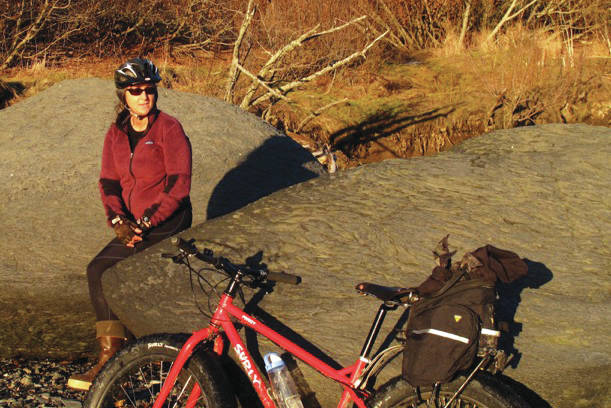‘Choose your battles wisely — there will be never-ending options here.”
Those were words of advice I received during my first week in Homer 22 years ago. Sure enough, before long I found myself standing in a crowded, tension-filled city hall — quiet-sport enthusiasts on one side, motor-sport fans on the other, debating whether or not to allow Jet Ski use in Kachemak Bay.
Conflict is a normal part of life. Consistent agreement between human beings is unrealistic. When conflict triggers strong feelings, a deep personal need is often at the core of the issue. We live in a society where one usually has a voice and, whether or not it is to your liking, majority rules.
Having spent the previous several years in New Zealand, I had witnessed first-hand the effects of personal watercraft on the oceans and lakes Downunder. No outdoor vehicle generates more social conflict and public outrage than a PWC. As someone who seeks and appreciates quietude, I personally put Jet Skis in the category of “man’s worst inventions,” alongside leaf blowers, Segways, auto-tune and robocalls. In fact, if an entity existed that would take my money and turn off the noise, I would probably find a way to pay it.
Jet Ski noise is different from that of other motor craft. Jet Skis continually leave the water, magnifying their impact. Minus the muffling effect of the water, the exhaust is much louder. An airborne Jet Ski has the same noise impact on a listener at the water’s edge as an in-water Jet Ski eight times closer, or as 32 identical in-water jet skis at the same distance. Rapidly varying noise is much more disturbing than constant noise, as decades of psycho-acoustics research has established. In New Zealand the incessant series of “whomping” ruined countless days in the water and caused much stress and anxiety for swimmers and waders.
Comprising less than 10% of all U.S. vessels, they’re involved in 55% of all collisions. Contrary to industry claims, PWC themselves, not simply the riders, cause numerous accidents on public waters. With no braking mechanism, they coast to a stop with no turning ability. I have personally witnessed several unfortunate accidents resulting in serious injuries from PWC use — riders weaving and wake-jumping, zooming in close to shore and docks at high speeds.
So, yes, my hackles were up and my blood pressure was rising at the thought of my new home, this Critical Habitat Area, becoming open to thrill craft. A public process including hearings and testimonies resulted in an overwhelming majority voting in favor of the ban. Thousands of Alaskans spoke out to protect Kachemak Bay followed by subsequent hearings to retain the ban.
So here I am, 20 years later, choosing the same battle and making a plea based on my personal beliefs and desires. The disamenity or unpleasant quality and character of the invention known as “Jet Ski” compels me to do so. The people have spoken and no new technology or so-called improvements over the past decades warrant repealing the ban.
The main difference this time around seems to be the unusual relationship of the governor and a few particular special interest groups and “special assistants” completely ignoring scientific reviews and wide support of the ban. There seems to be some question as to who approached whom and instigated this falsehood that the definition of personal watercraft is suddenly not in conflict with preservation of this crucial, vital habitat.
Why is the majority being ignored? Why is this decision coming from the top down instead of originating from the bottom up?
“Misery acquaints a man with strange bedfellows.” Are we Dunlearnin’ and forgetting how democracy is supposed to work?
Suzanne Greenwood describes herself as “a passionate, inspired Alaskan and living proof that pobody’s nerfect.”

